Disclosure: All opinions expressed here are our own. We only recommend products/services we believe in and would buy ourselves. This post may contain affiliate links, and if you use them to buy something, we may earn a commission. It comes at no additional cost to you, and it’s a way to help us maintain our blog!
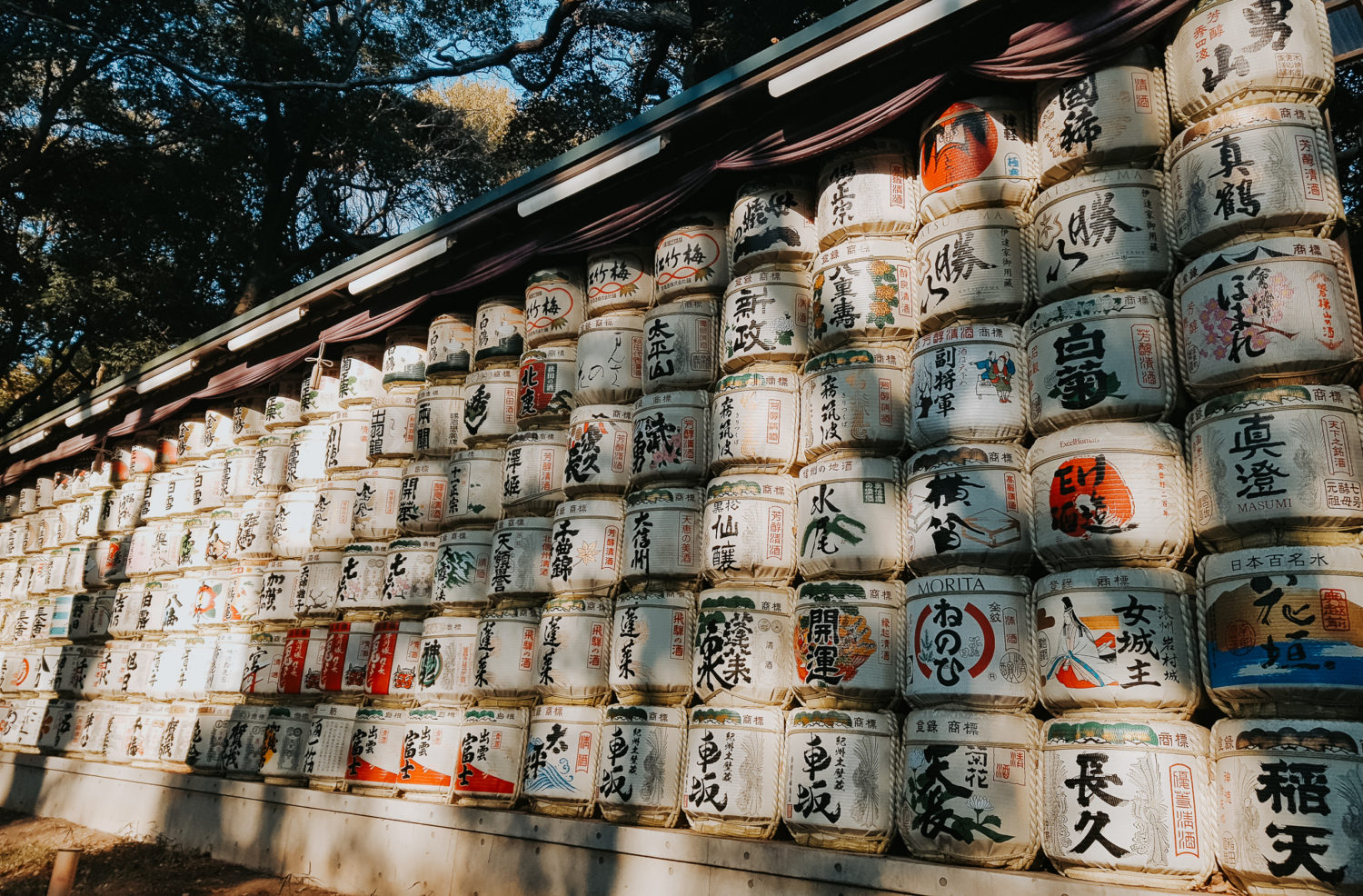
Why Japan?
Japan is one of the most captivating countries we have visited so far. It’s hard to put into words how different everything is from anywhere else: the weird commercials, the most sophisticated toilets you’ll ever see, the loud noise when entering a Pachinko room, or the people who daily dress up as their favorite anime character. So, why should you pick Japan for your next trip?
– The people: Even though it’s quite hard to find someone who speaks English, you’ll meet the most kind and thoughtful people during your time in Japan. Every time we got lost or asked for advice, everyone went the extra mile to help us. Even if that meant interrupting their meal to walk us to the nearest ATM. The Japanese people are beyond respectful and give much value to good manners and etiquette.
– Outstanding food: If you’re like us, food plays a big part in your life, including when you’re traveling somewhere new. We were amazingly surprised to find out that Japan has some of the most delicious food we’ve tasted around the world! It’s not only sushi and sashimi: you also have to try the Yakitori, Udon, Ramen, Tempura, Okonomiyaki…, it’s a never-ending list of mouth-watering food. In fact, the Japanese are so demanding and self-critical on everything they do, that even western restaurants are fabulous. Seriously, it’s impossible to have a bad meal in this country! And the best of all is that even in the subway stations or at the popular 24/7 supermarkets you’ll find great quality food at very cheap prices!
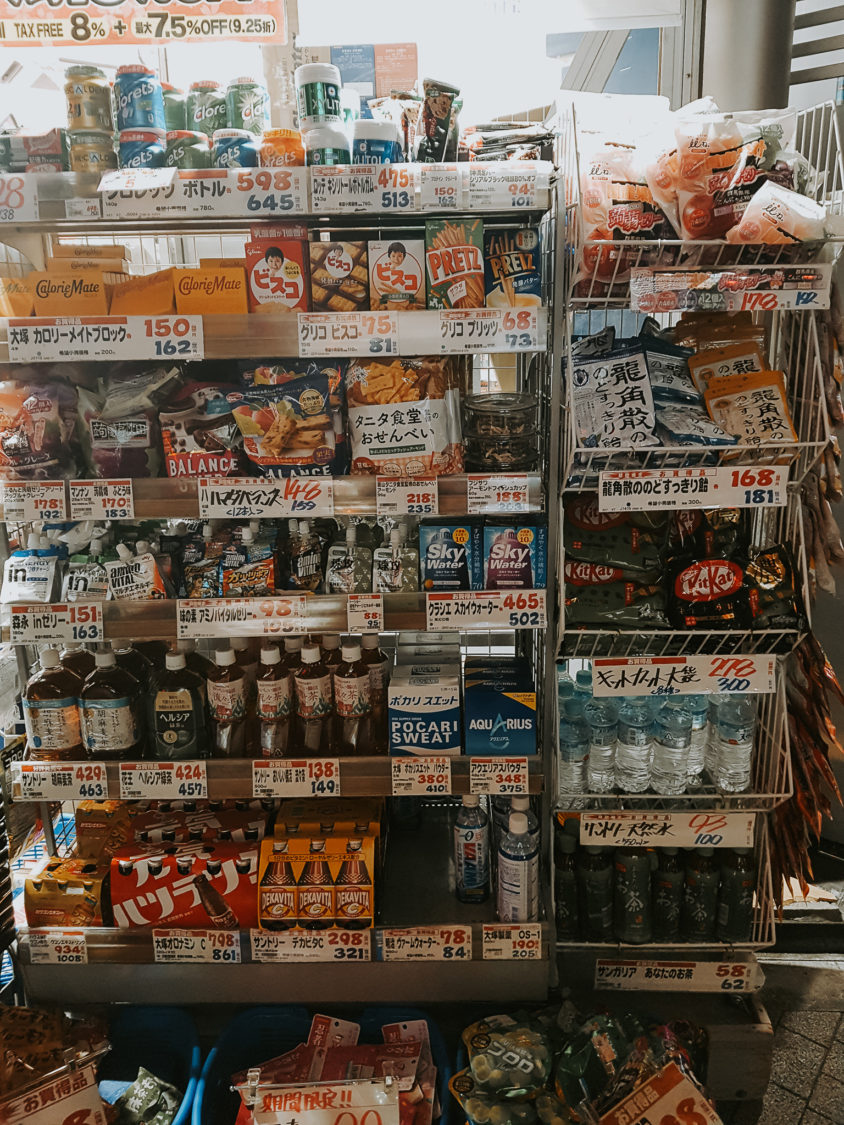
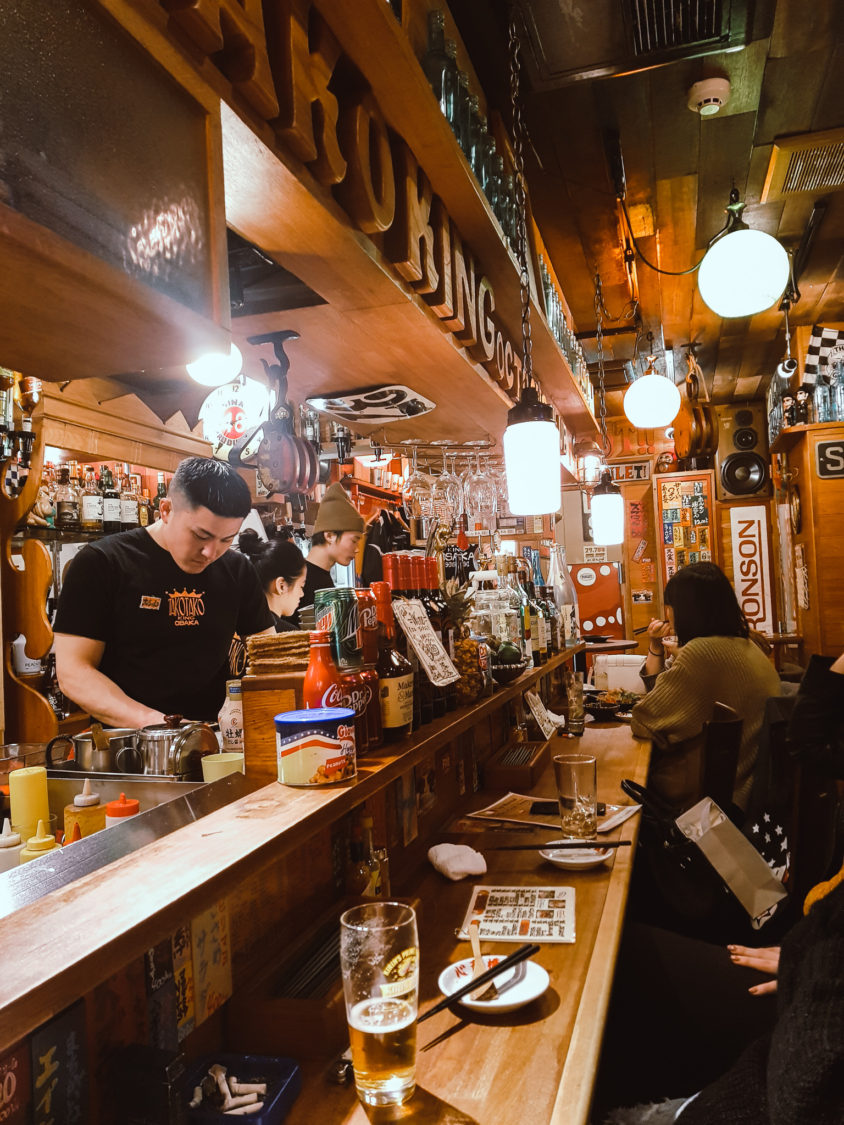
– Immersive Culture: There’s a reason behind everything the Japanese do. Their deep traditions have survived globalization, and are still very much present in daily life. On the other hand, Japan manages to be one of the most high-tech countries in the world, always one step ahead when it comes to innovation and technology.
You can also observe these contradictions in the way people behave. The Japanese put their jobs above everything else, are incredibly polite, and remarkably obey all the rules. Yet, they will never miss a Karaoke night filled with Whisky and Sake.
During your trip, you’ll discover new details and special features that make this society so distinct and unique. It will leave a lasting memory on you.
– Diversity: Japan is a country with stunning places, and plenty to offer. No matter if you’re looking for nature, culture, or city life, you’ll find it all! Opt to visit the ancient shrines and temples, or to spend your days exploring the bustling cities. You can ski in Sapporo or relax in the pristine beaches of Okinawa. Japan has something to please everyone!
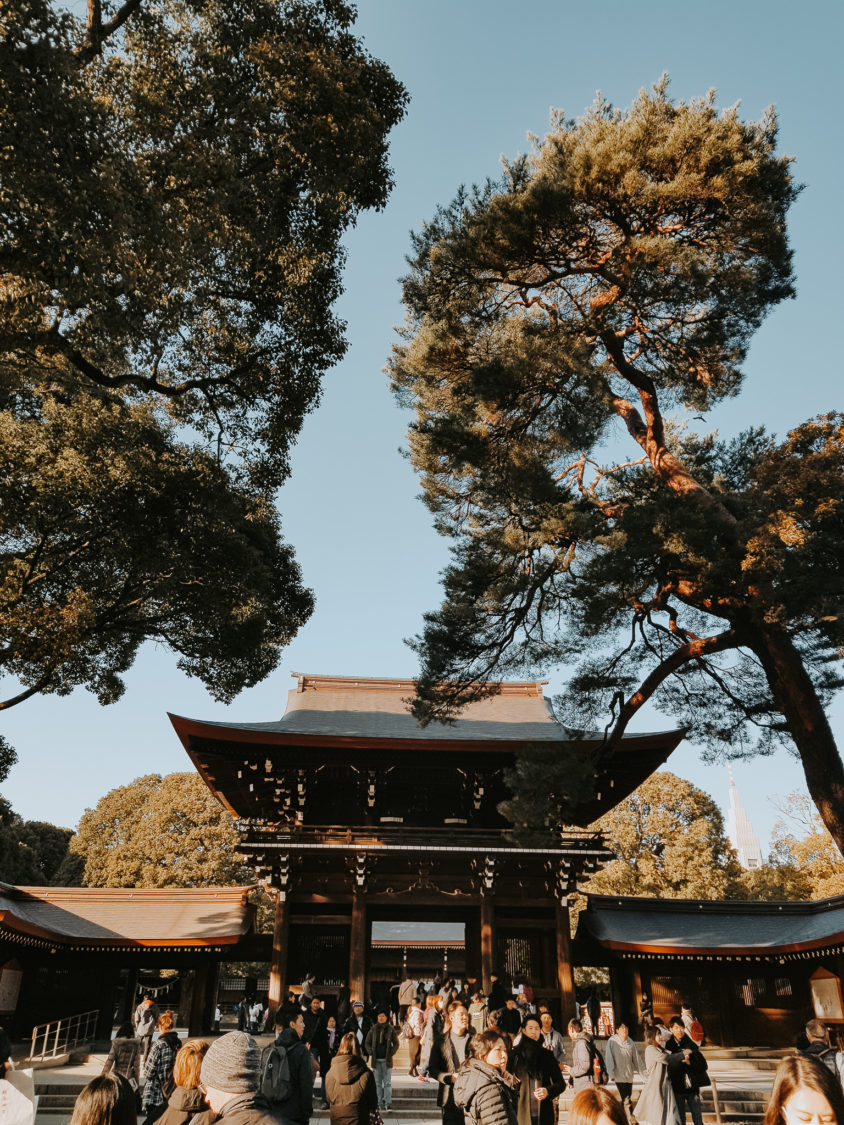
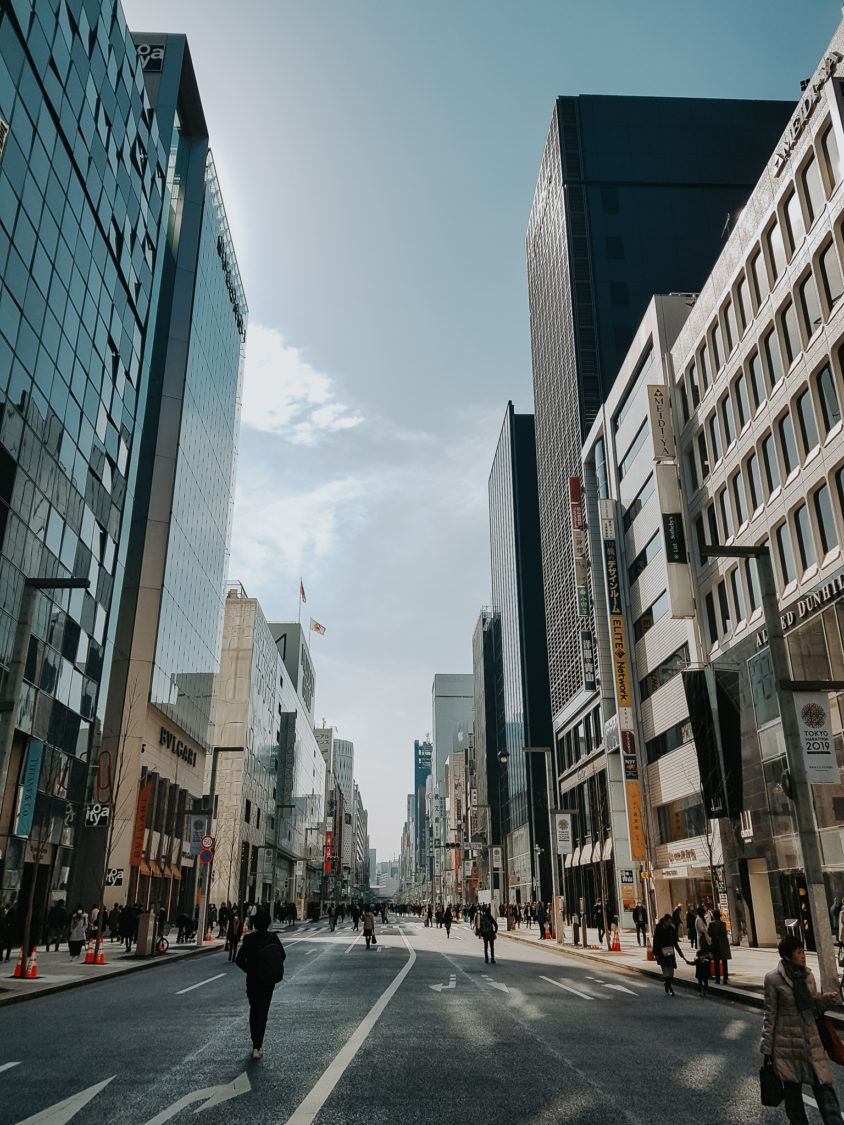
best time to go
Each one of Japan’s four seasons has its unique perks and disadvantages. As it happens to most of the countries of the Northern Hemisphere, August is the hottest month, while January is the coldest. However, the weather can vary a lot inside Japan, because of the great distance separating the north and south tips.
In general terms, these are the main points to take into account:
- March to early May, and September to November are generally perceived as the best months to visit Japan.
- The unique Cherry Blossom (Sakura) occurs during spring, with a different schedule from year to year. It attracts a crazy amount of tourists being the most popular time to visit Japan. While it fills the country with amazingly beautiful sceneries, you should get ready for the crowds, the higher prices, and lower accommodation availability.
- Fall is a great time to travel to Japan due to the changing foliage, which creates a charming atmosphere.
- The summer months are remarkably humid and hot, with the monsoon season running approximately from early June until the end of July. Typhoons usually occur during this season, regularly peaking in late summer.
- Winter (apart from the New Year week) is the season that receives fewer visitors due to the cold. It can be a great time to visit the country if you want to head to the world-famous ski resort or enjoy the Japanese Onsens. Therefore, if you don’t get easily affected by cold temperatures, you’ll have a great trip with fewer tourists around and clear skies!
HOW MANY DAYS SHOULD YOU SPEND IN Japan?
It depends on the places you want to include in your journey. However, even a one week trip can be worth it since the efficient railway of the country can take you from Tokyo to Kyoto in less than 2:30 hours. We’ve spent 2 weeks in Japan and were able to cover a lot, from big cities to the countryside, and even two tiny islands. Still, we’re dreaming about going back to visit the top-notch skiing tracks of Sapporo (located in the North of the country), as well as the southern paradise island of Okinawa.
Health and Safety
Considered one of the safest countries in the World, Japan has a remarkably low crime rate. We never felt insecure, even when taking the night subway or while walking alone. It’s common to see people sleeping on the public transports and all sorts of behaviors that transmit a worry-free posture. You’ll realize that the population takes the rules very seriously, and mind their manners. However, there’s no such thing as too much caution: keep an eye on your belongings to avoid unfortunate surprises.
There are no required vaccines to enter the country, but make sure you are up-to-date on your routine ones. Moreover, we recommend you buy travel insurance, no matter where you’re going. We’ve always used World Nomads and couldn’t be happier about our choice.
Costs and currency
must see
There’s not a thing we would change about our trip around Japan. However, if we had to choose our absolute musts, they would be the following:
They are in no particular order, and it is a very personal view. You can check our full itinerary to help you plan your journey and decide for yourself which places you’re most keen to visit.
Secret tips
24-hour convenience stores
You’ve already noticed how hard we fell in love with Japanese food. However, you don’t have to spend tons of money and go to Michelin star restaurants only. Some of the best things we’ve tried out were from little cafes in subway stations or 24/7 convenience stores! Even locals go to these supermarkets to grab their breakfast before work! You’ll find Japanese breakfast classics (like rice balls, or miso soup), but also western choices, including yummy fresh pastries! If you wanted to, you could buy all of your meals from these stores alone!
Take advantage of lunch menus
Speaking of food, almost every restaurant presents a very affordable lunch menu! Keep an eye on those since it can be a great way to have a meal at an excellent place without paying its full price.
Watch your manners
Every society follows specific behaviors and has personal rules of etiquette. When it comes to Japan, this list is big and includes very particular cultural norms:
– Don’t walk while eating. The Japanese consider it impolite.
– Don’t feel concerned when seeing people wearing surgical masks. They usually do it when they have a cold and don’t want to infect others.
– Everyone in Japan speaks quietly, especially when in public transports. Be respectful by keeping your voice down and not answering your phone.
– There’s not a tipping culture in Japan. If you leave a tip, you’ll probably be chased by the staff, which will insist on giving you back your money.
– There are very few public trash cans. Get used to carrying around wrappers, bottles, and all trash you accumulate throughout the day.
– When eating noodles, make sure you slurp! It’s considered rude not to do it!
Stay in Hostels
Accommodation can be quite expensive in Japan. However, and like everything else in Japan, the service and thoughtfulness of the staff will go beyond your expectations. Even if you end up choosing hostels, like we did for some nights, expect higher prices than the ones you’re used to, but also a top-notch experience. Since we’re traveling as a couple, we always chose private rooms and were surprised to realize that the quality of Japanese hostels is very high. It was quite similar to a hotel stay, only with a younger and more lively crowd.
Bar games
During a rainy day in Tokyo, we’ve found out the game bar culture! These places consist of rooms full of every video game consoles you could ever want! You pay an hourly rate to play, and depending on the bar, it can include free drinks, free snacks, or both! We went twice to a place called Game Bar Tokyo, close to the subway station of Kanda. It was very inexpensive if you take into account the price of drinks in most bars, and we had loads of fun!

Add a Comment